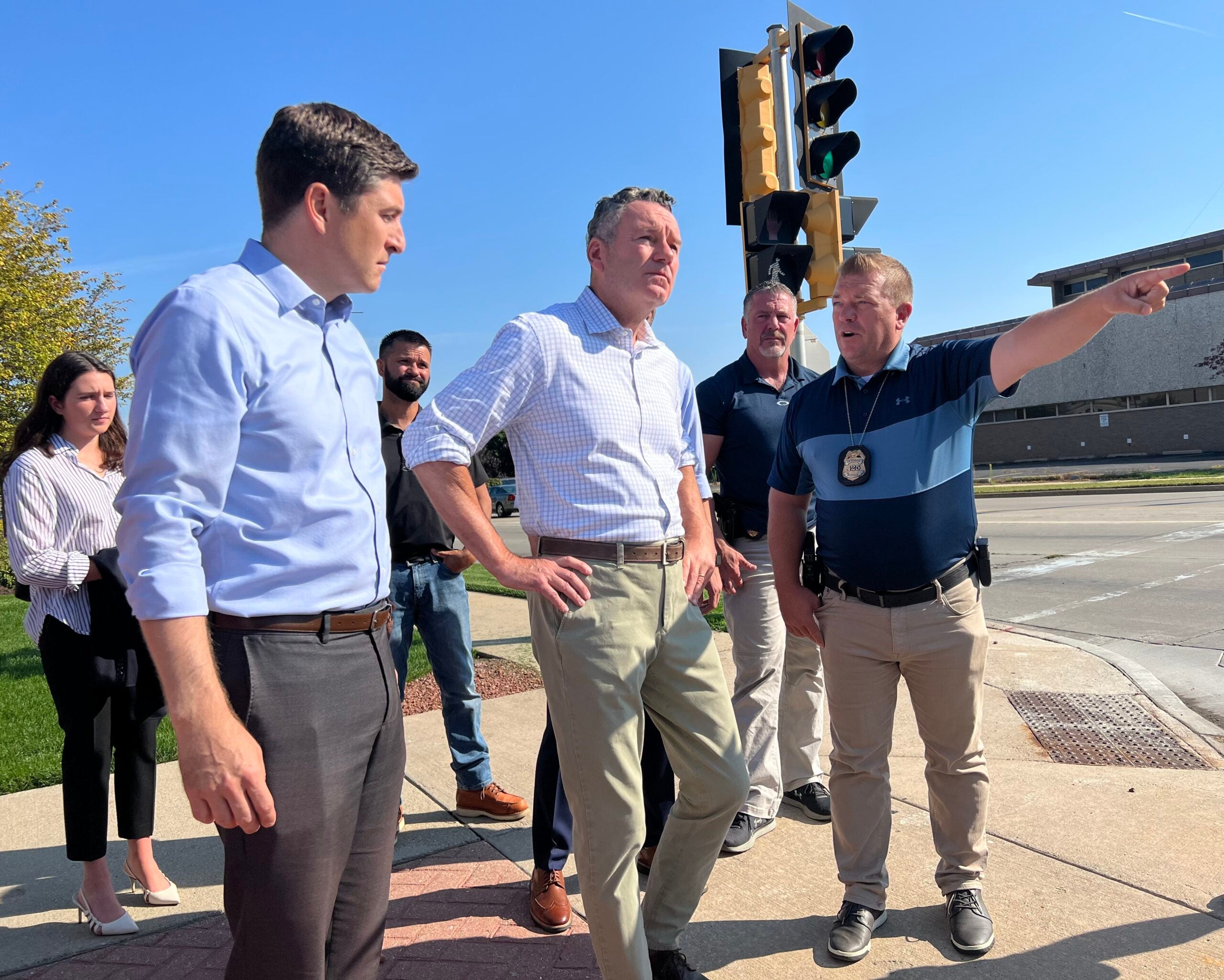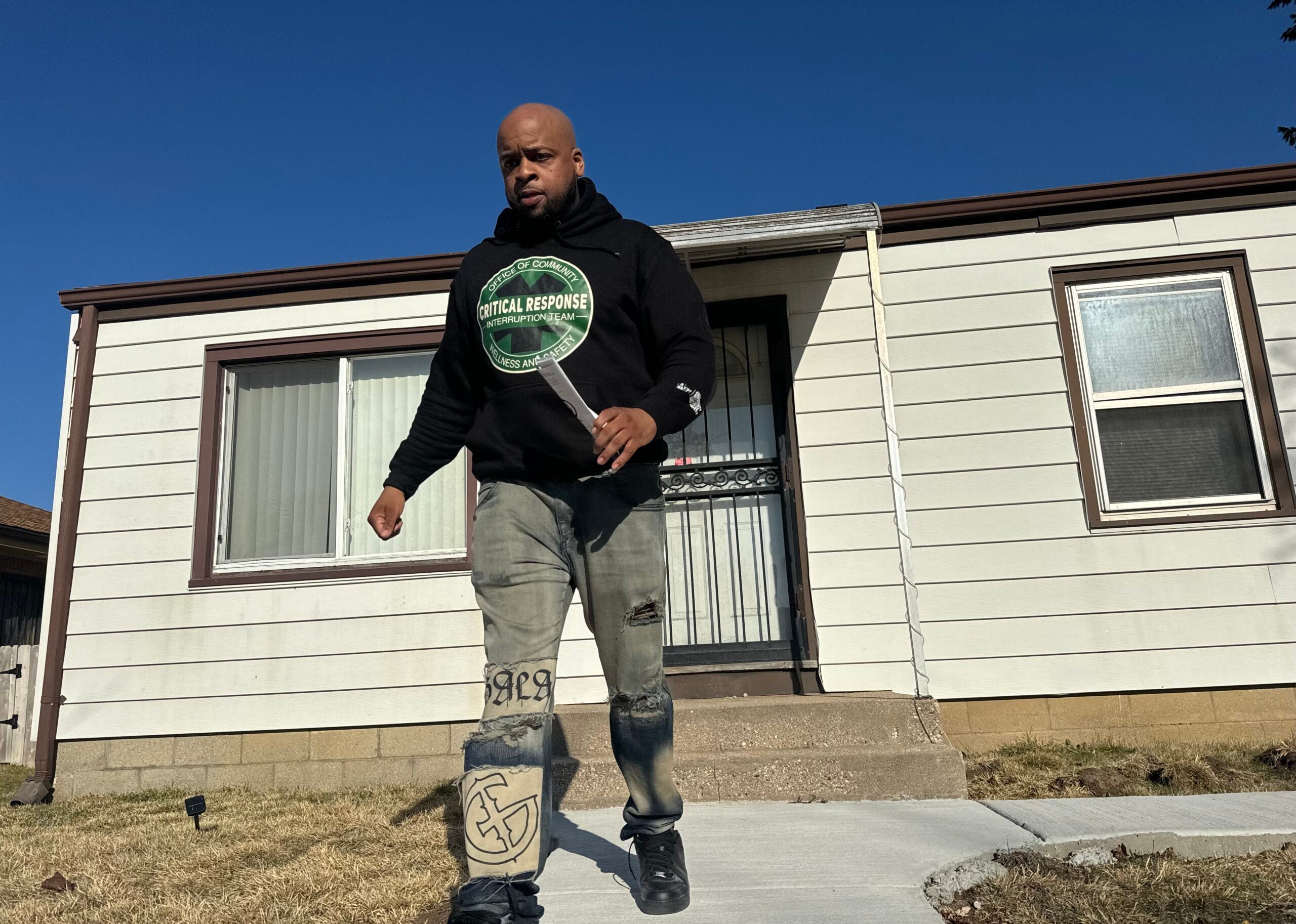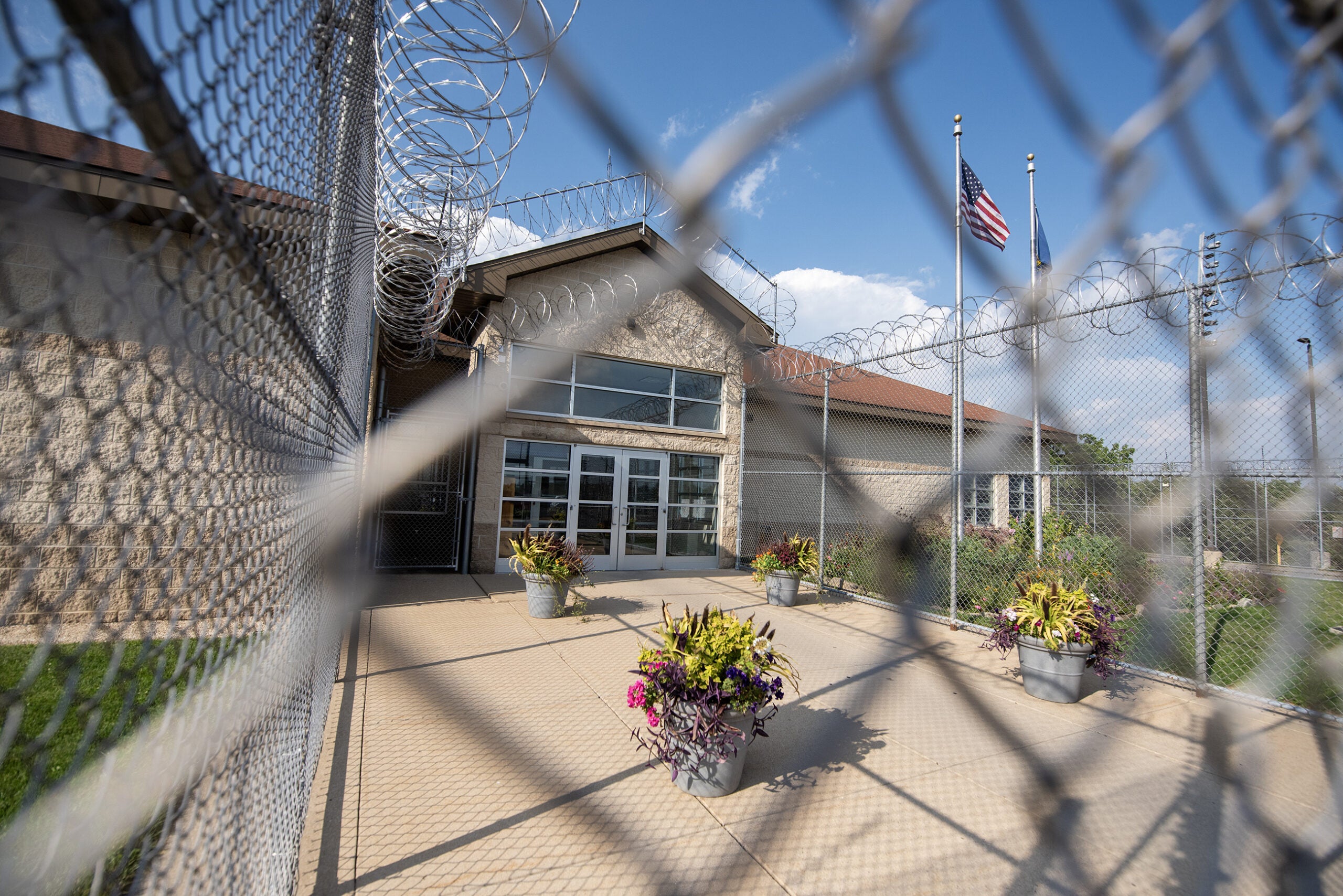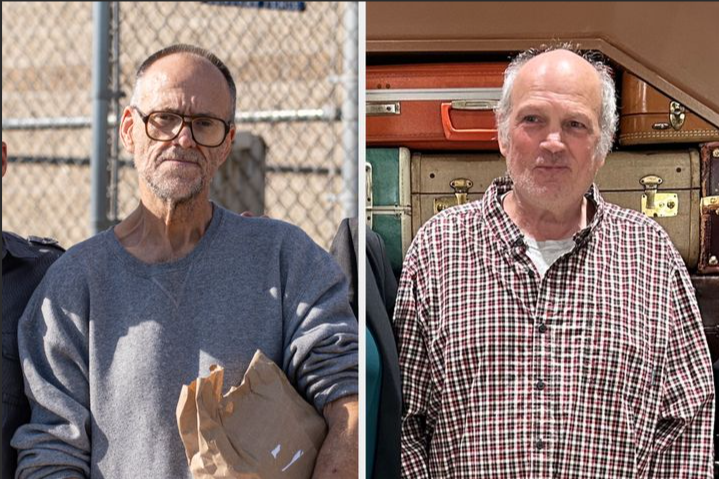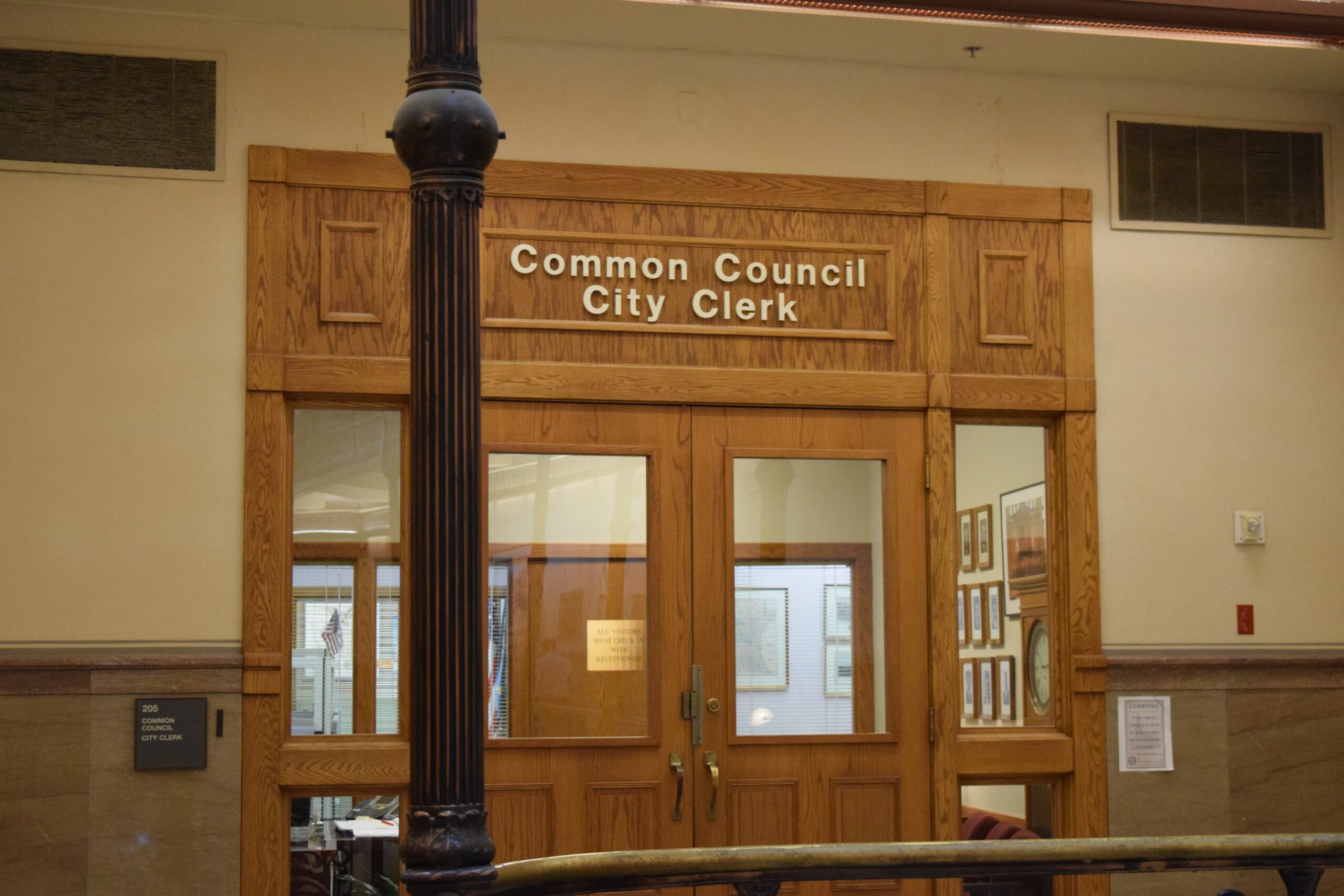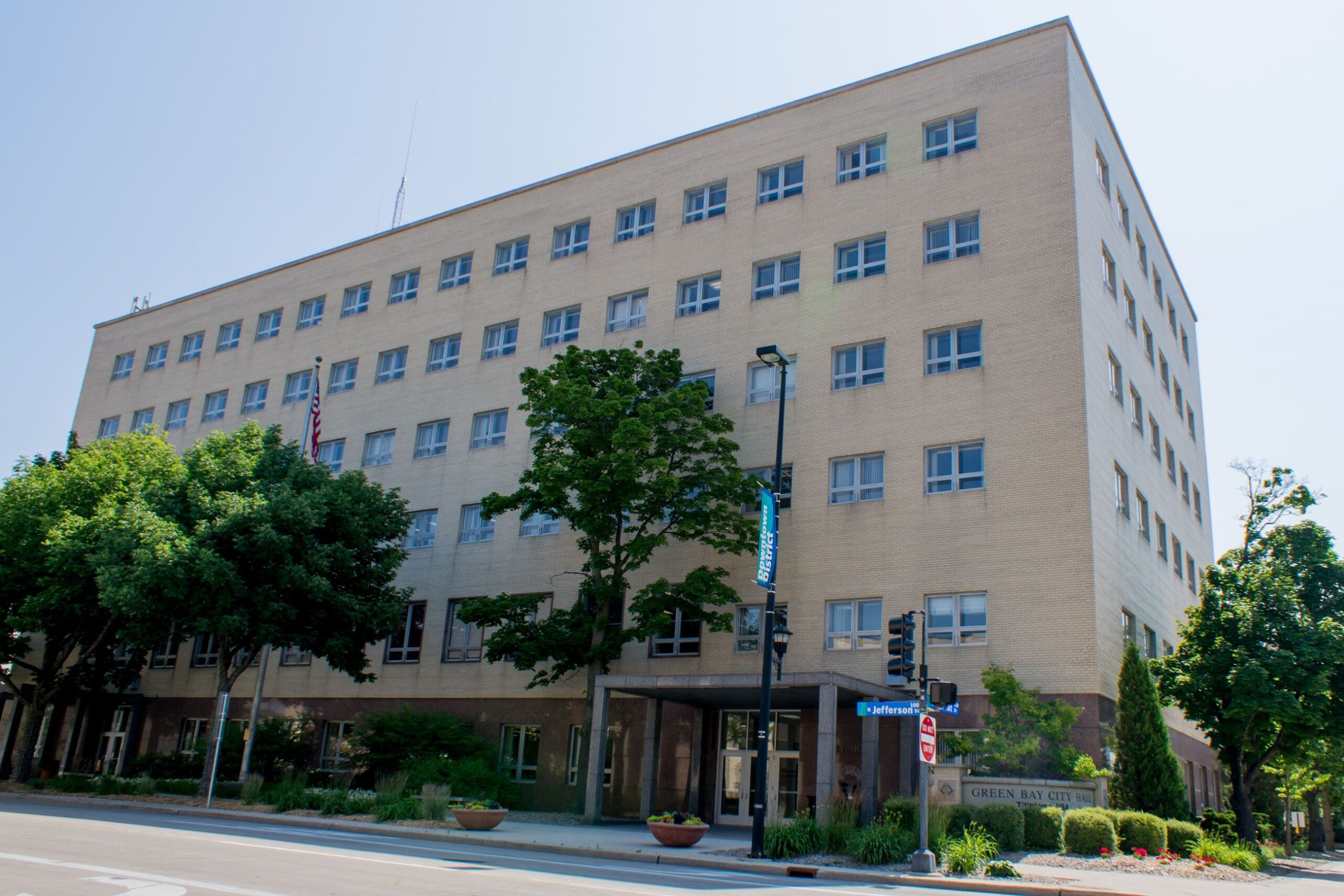When the candidates for Wisconsin governor met in last week’s debate, Republican Tim Michels promised that if he’s elected, criminals would take notice.
“I’m going to let them know, there’s a new sheriff in town,” Michels said.
Michels and Democratic Gov. Tony Evers agree that more state funding needs to go to local police departments to address crime and public safety. But the style of their campaigns’ appeals on the issue couldn’t be more different.
Stay informed on the latest news
Sign up for WPR’s email newsletter.
Michels has made crime one of the key issues in his campaign against Evers — it’s the subject of wall-to-wall political ads, and he’s boasted of his law enforcement endorsements, which include police unions in Milwaukee and Kenosha.
Evers has pointed to moves he’s already made to increase state funding for local public safety measures. He’s already allocated millions in federal pandemic relief for local communities to address public safety. The majority of those funds went to Milwaukee. He has also proposed a 4 percent increase in funding for local governments each of the next two years through his 2023-25 biennial budget. He also wants to give $10 million in shared revenue for communities to address EMS, police and fire costs.
In a lengthy plan to increase support for police and address public safety, which he labeled his “Back the Blue-Print,” Michels said his goal is to increase police officers in dangerous neighborhoods and beef up the courts system. His proposals include firing “woke prosecutors,” enacting a mandatory minimum sentence of two years for felons convicted of gun possession and punishing any municipality that cuts funding to police by limiting state aid. He also wants to add more criminal courts, assistant district attorneys and public defenders across the state to “speed up criminal trials,” according to his plan.
The Michels campaign has not detailed where funding for its “Back the Blue-Print” policies would come from. The campaign did not respond to a request for comment from Wisconsin Public Radio.
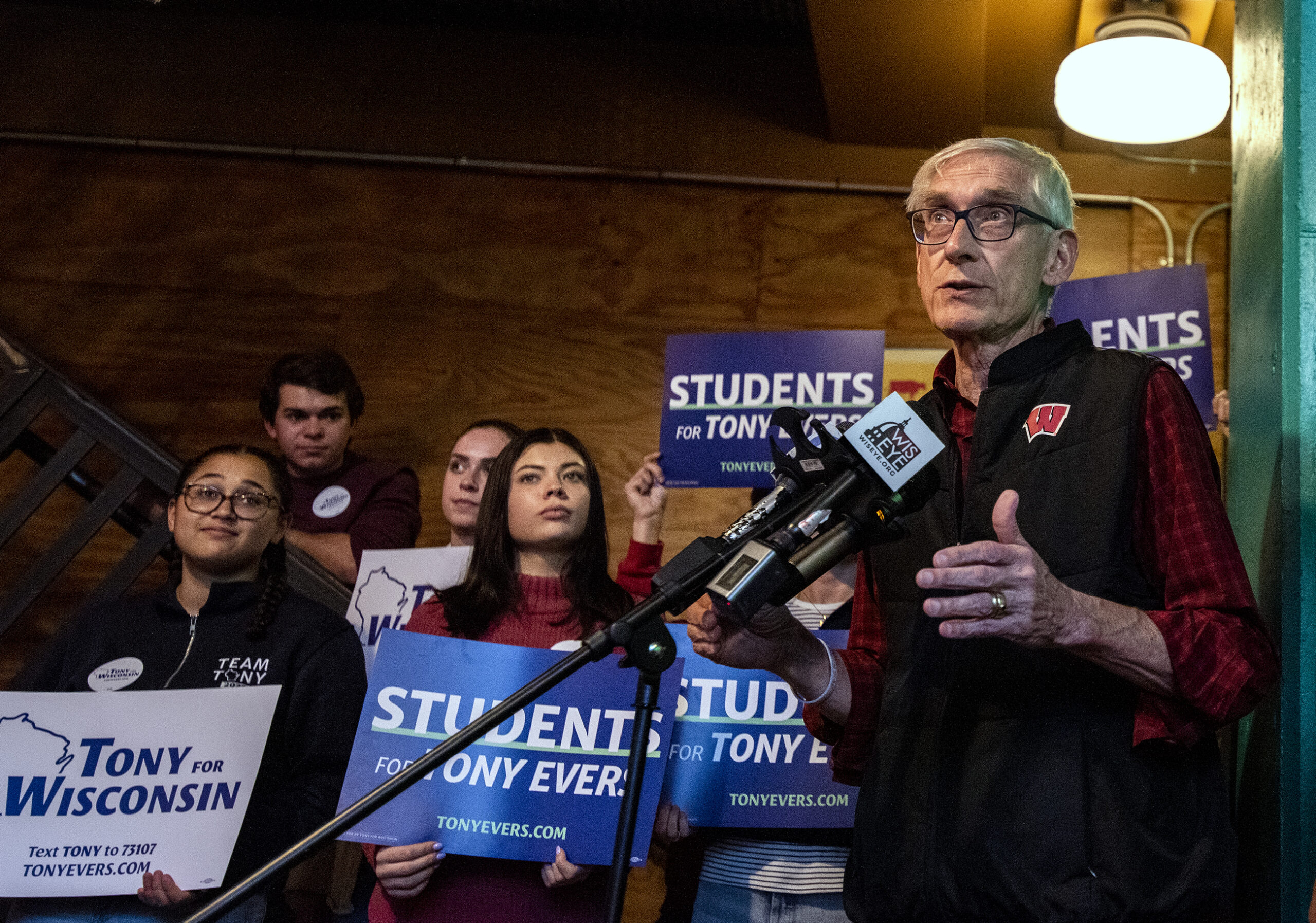
READ MORE: Wisconsin had 315 homicides last year. That’s a 70 percent increase from 2019.
Kayla Anderson, a spokesperson for the Evers campaign, said Evers has “prioritized community safety” throughout his tenure as governor.
“Gov. Evers supports increasing shared revenue and funding for local public safety investments, including violence prevention, after school programs in high crime areas, affordable housing, and more,” Anderson wrote in an email.
Wisconsin voters say crime is among the top issues for them this election. The city of Milwaukee, which is often a target for Republican candidates, is on pace to set another homicide record this year. Reckless driving has also plagued the city, leading officials to create a “Traffic Safety Unit” to address the problem. A June Marquette University Law School poll found that concerns about personal safety are greater in Milwaukee than in other areas of the state. Vehicle thefts, which are down this year compared to last, are still a concern for many visitors and residents as well.
According to the National Governors Association, governors can take a slew of actions related to law enforcement and public safety, including using executive orders to improve hiring and training for police or creating law enforcement task forces or commissions.
Kenneth Streit, a professor at the University of Wisconsin-Madison’s Law School who studies the criminal justice system, said governors can also address the issue by increasing revenue sharing with local municipalities.
They can also take a public health approach to violence prevention. That includes gathering input from diverse sectors including health, education, social services, justice, policy and even the private sector, according to the Centers for Disease Control and Prevention. That approach emphasizes prevention programs and social supports. Some experts believe that approach can help address the root causes of violence.
“The issue for public health is that that’s a long-term strategy,” Streit said. “If you have to start intervening at age 3 to improve school outcomes, you’re not really going to see a turnaround in homicide rates for a couple of decades. But yet, that’s important.”
Voters care about crime, but partisans’ views diverge
Wisconsin reported 315 homicides in 2021, up from 305 in 2020 and up sharply from 185 in 2019. Law enforcement experts say the reasons for that increase could vary from too many guns on the street to the ongoing effects of the COVID-19 pandemic to human desperation.
The state saw a 5.3 percent decline in violent crime from 2020 to 2021, according to an estimate from the FBI. But data from the state Department of Justice indicates homicide, assault and motor vehicle thefts have increased in recent years in Wisconsin.
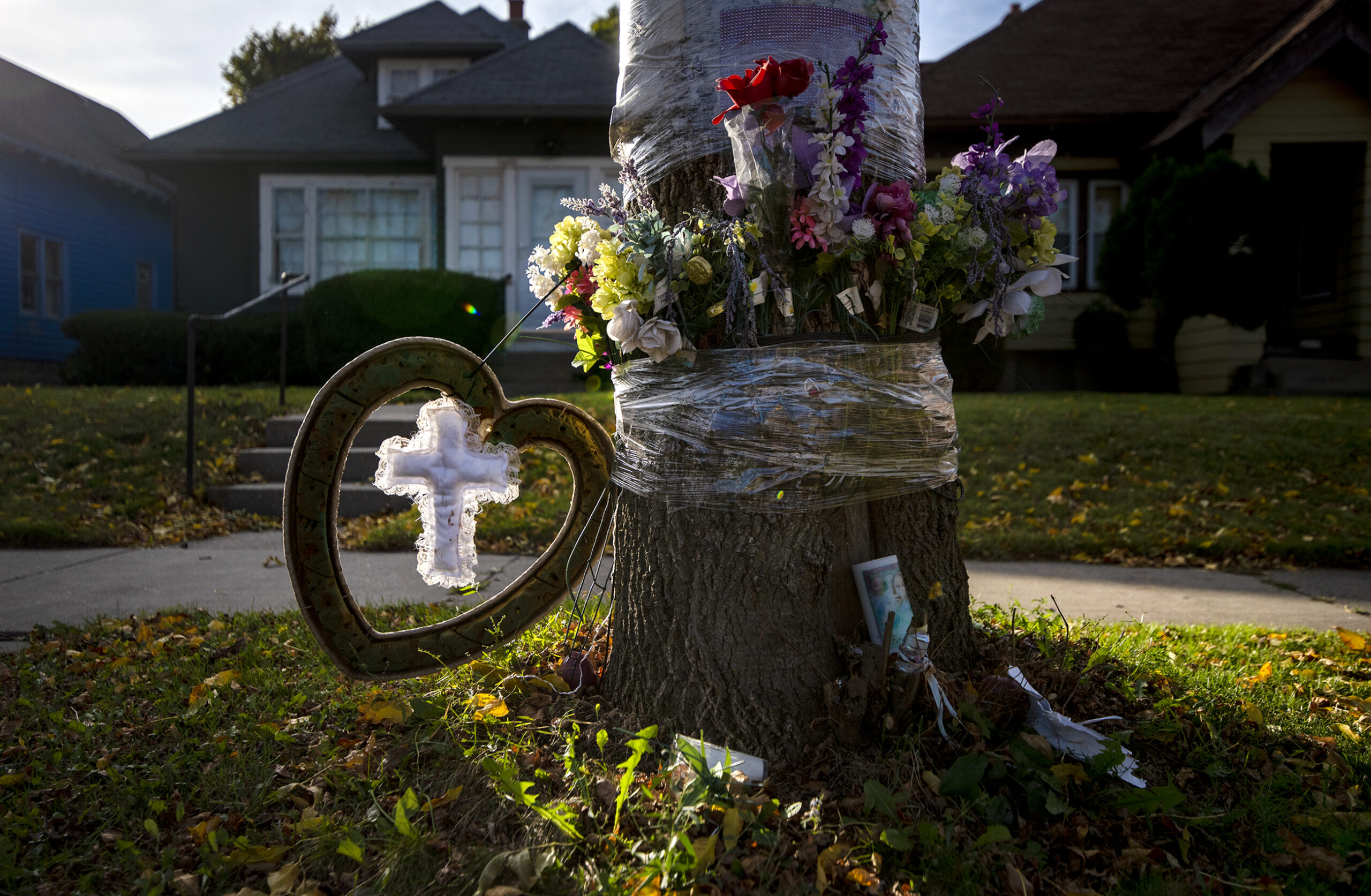
Wisconsin voters say crime is among the top issues for them this election. But it’s also become an increasingly partisan one. In an October poll from the Marquette University Law School, 74 percent of Republicans polled said they were “very concerned” about crime, compared to just 38 percent of Democratic voters.
Barry Burden, a political science professor at UW-Madison who is also the director of the Elections Research Center at UW-Madison, said these crimes are the more “visible and shocking” ones, which can gain more attention from the electorate. And since Evers and Democratic state Attorney General Josh Kaul have been in power in recent years, Burden said they’re an easy target for Republicans running for office.
“The focus on crime, I think, helps Republicans continue to frame this effort as a referendum on the people in office and to try to convince voters if you are unhappy, the thing to do is to remove those people and to elect Republicans,” Burden said.
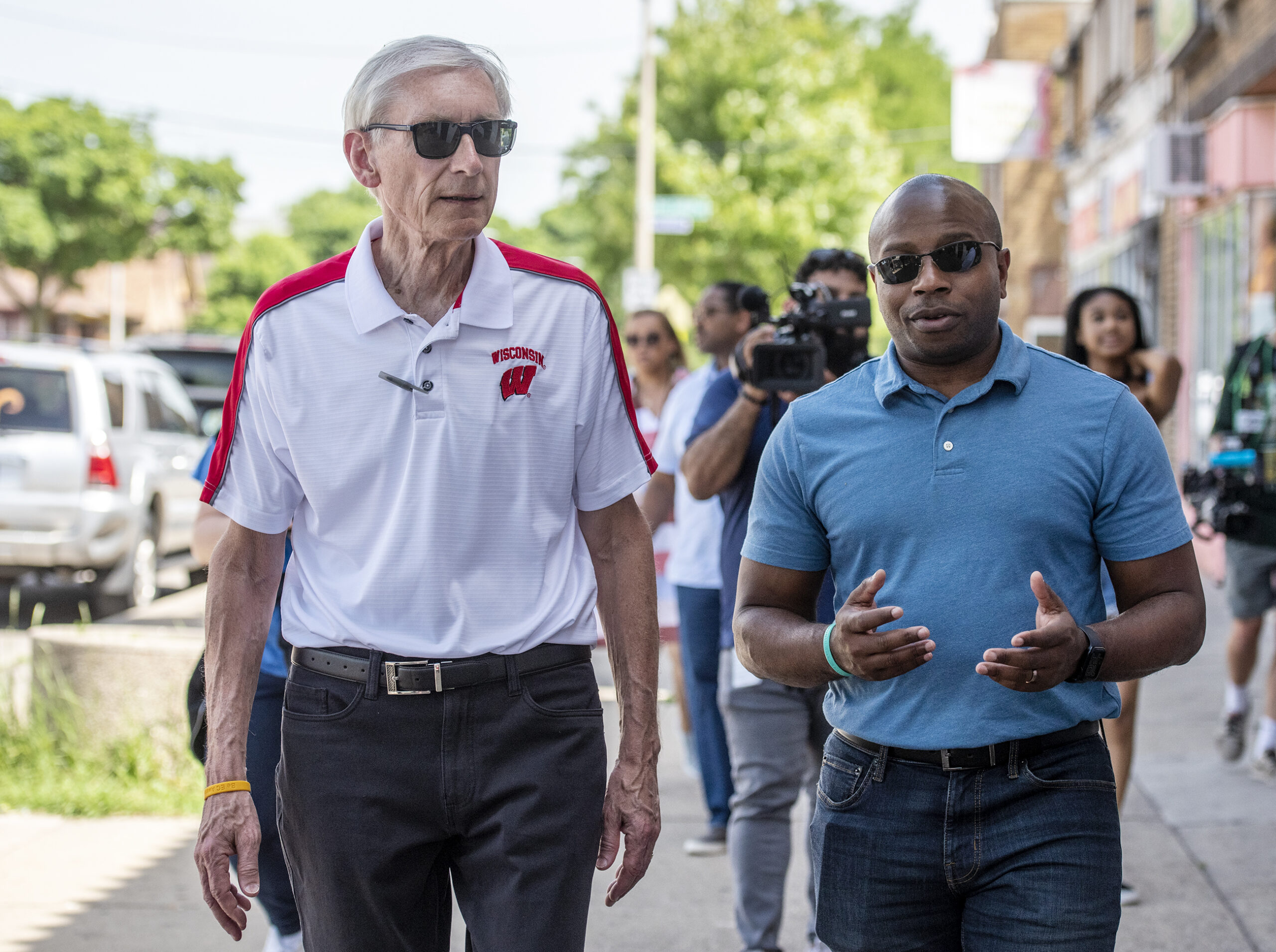
Streit said adding resources in the criminal justice system — including more funding for public defenders, judges, prosecutors — could be an effective approach.
“If you’re really going to have a vision as a governor,” Streit said, “you could say, ‘I recognize that the local people have the best chance at what kind of interventions we could do to turn it around,’” adding that local municipalities could also submit requests for statewide funding.
Michels’ plan is encouraging to Andrew Wagner, the president of the Milwaukee Professional Police Association. That association endorsed Michels for governor.
“He doesn’t want the status quo. He wants to increase that police force and make sure that the city has what it needs to be safe,” Wagner said.
But not everyone believes more police is the answer, including Angela Lang, the executive director of the Milwaukee-based Black Leaders Organizing for Communities. She believes Michels’ approach is the wrong one.
“Some of the things that he’s supporting, it feels very heavy-handed,” Lang said. “Whereas in contrast, we see Gov. Evers lead with a more compassionate approach.”
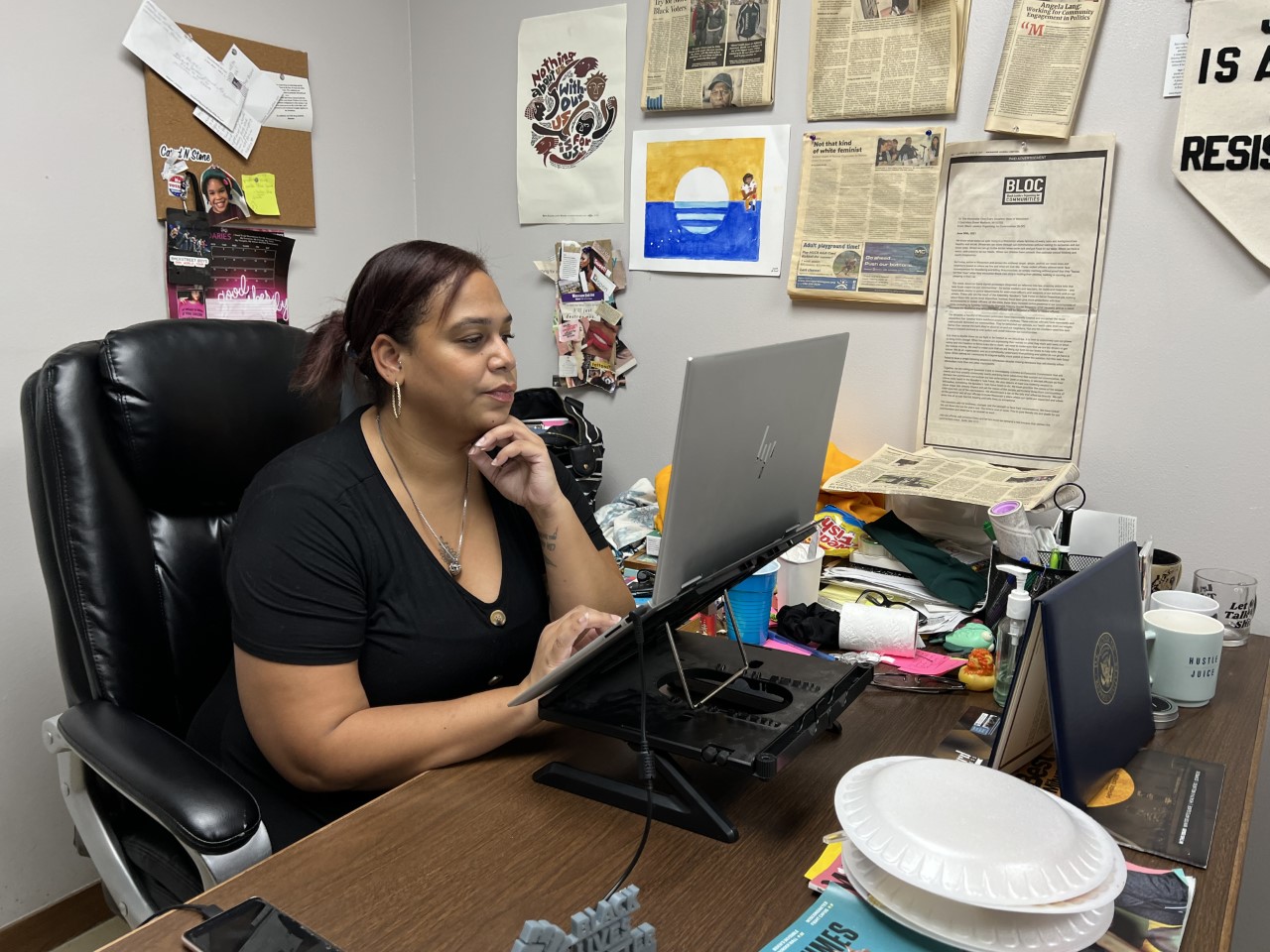
Lang believes more money invested directly into communities for housing, public education, liveable wages, mental health resources and affordable health care is the more effective approach to prevent crime.
“Those are what’s going to help thriving communities and hopefully reduce crime as well,” Lang said.
Michels has also called on Evers to stop granting parole.
“These criminals deserved to serve their entire sentences,” Michels said in a letter addressed to Evers. “Many of those you’ve granted early parole should have remained locked up for life, but they are living freely among us now.”
Evers has maintained that although he appoints the chairperson to the commission, he does not make individual parole decisions. Wisconsin’s Parole Commission is required by law to consider parole for prisoners convicted of felonies on or before Dec. 31, 1999, under the state’s “truth-in-sentencing” law.
“This is clearly an uninformed stunt to score political points by someone who has no regard or appreciation for the laws of our state,” a spokesperson for Evers told WPR.
On Thursday, a spokesperson for Michels sent a statement to WPR which said the parole commission is granting paroles at a “massive clip” under Evers.
“While Evers says he has no control over what his agencies do, he did intervene on one of the nearly 1,000 paroles under his watch and even bragged in the debate that he ‘fired’ the parole commission chair,” the statement said. “So does he have authority and influence and thus responsibility, or does he not? He most certainly has made Wisconsin less safe.”
2 years later, Republicans see Kenosha as a key
Issues of crime and policing can be extremely contentious. Nowhere is that clearer than in the campaigns’ discussion of Kenosha in 2020.
After a Kenosha police officer shot Jacob Blake, a Black man, on Aug. 23, 2020, the city erupted in protests and riots that turned deadly. In riots in the days after the shooting, Kyle Rittenhouse, a then-17-year-old from Illinois, fatally shot two people and injured a third. Rittenhouse was acquitted of all charges in 2021.
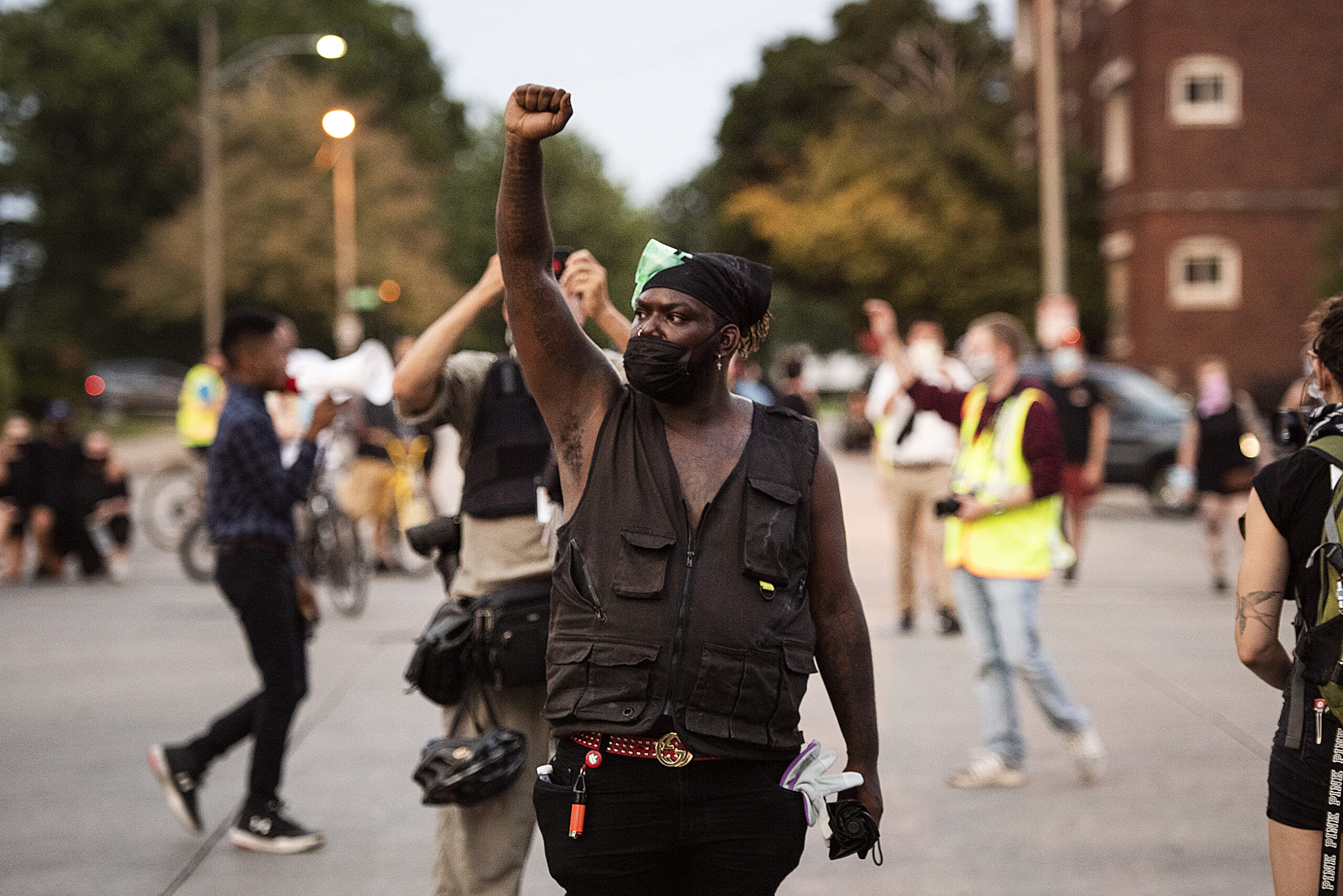
But two years after the conflict, Michels and other prominent Republicans continue to discuss the incident in an effort to blame Evers for what they say was a lack of leadership. Michels held a roundtable on the two-year anniversary, telling those gathered that Evers should have offered more support for law enforcement after the shooting.
The Evers campaign claims Michels is using the event to divide voters.
“Rather than helping our state continue to heal and move forward, Wisconsin Republicans and Tim Michels are trying to mislead Wisconsinites and divide communities,” a statement from Evers’ spokesperson said.
Even so, Jim Palmer, the executive director of the Wisconsin Professional Police Association, said he believes Evers was wrong to issue a statement condemning the shooting right away, rather than waiting for more details. Palmer said it’s soured many rank-and-file police officers on Evers.
Tonight, Jacob Blake was shot in the back multiple times, in broad daylight, in Kenosha, Wisconsin. Kathy and I join his family, friends, and neighbors in hoping earnestly that he will not succumb to his injuries.
— Governor Tony Evers (@GovEvers) August 24, 2020
“There are just far too many officers throughout the state that can’t get past those comments surrounding Jacob Blake,” Palmer said.
Kyle Johnson, Black Leaders Organizing Communities’s political director, said he believes Evers did respond to the incident appropriately. Johnson also said he believes Republican claims about what happened there in 2020 have enflamed radical groups in the city.
“Honestly, it’s dishonest and it’s hurting people,” he said.
At Michels’ Kenosha roundtable in August, the candidate pressed the point — and what he says differentiates him from Evers.
Kenosha, he said, “should have found leadership from the governor. … It didn’t happen,” Michels said. “Kenosha was ignored and as a result, Kenosha burned.”
Wisconsin Public Radio, © Copyright 2025, Board of Regents of the University of Wisconsin System and Wisconsin Educational Communications Board.

